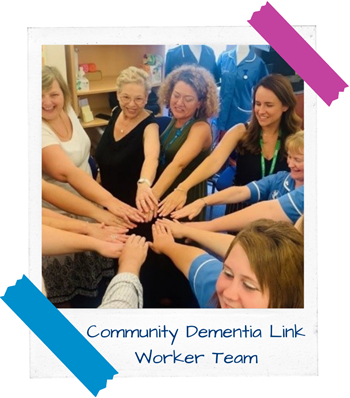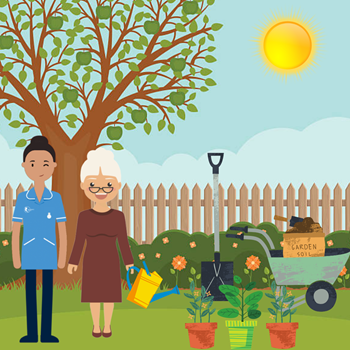Dementia care Stroud and Cirencester
You would be hard-pressed to find a homecare provider who didn’t represent themselves as a dementia specialist service these days. However, all dementia care is not the same, and when investigating any potential care provider, it is worth asking questions to find out exactly what it is that makes their dementia care service the right choice for your loved one.
Our advanced dementia team in Stroud and Cirencester has been developing our service since our opening in 2013, building on the work we started in our North Gloucestershire office in 2010. We have been providing advanced dementia care from Painswick to Dursley and Wotton-Under-Edge, and from Fairford and Lechlade to Stroud and Stonehouse in all of that time, and our philosophy of constant improvement has enabled us to identify what we believe are the key factors which make up a dementia support service which meets the needs of everyone involved.
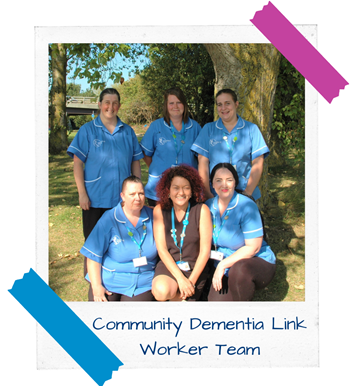
The Many Components of Excellent Dementia Care
Home Care is the Best Care
There is a great deal of talk about ‘Transfer Trauma,’ or ‘Relocation Stress Syndrome,’ where someone who moves into residential care or hospital experiences a dramatic increase in the symptoms of their dementia, and we have witnessed this many times. This is rarely due to poor care in the new location; instead, it is worth considering how much our own environment provides us with the cues for the thoughts and actions which make up a great part of our personality.
For instance, we might wake up in the morning, open the curtains, and see that the garden needs mowing, or the flower beds need attention. We know they are our ours, so we go to the shed where we keep the gardening tools, and this starts a morning of meaningful activity and exercise. .
Perhaps when we go downstairs, we plump the cushions on an old chair, and the smell reminds us of when a friend or relative sits there. This prompts us to tell a story about that person, or to want to call them and chat.
Imagine how many of these cues we experience each day in our familiar environment, and how many trains of thought and action are inspired by them. If you combine this knowledge with the fact that a person living with dementia may find it hard to create new bonds or understand new situations, it is easy to understand why so many people struggle terribly with relocation. While the stress of relocation may well subside with time, the cues for conversation and activity may not ever be replaced.
Our person-centred, one-to-one service supports someone living with dementia to continue respond to the memories and cues provided by their own home and community to continue living a happy and meaningful life.
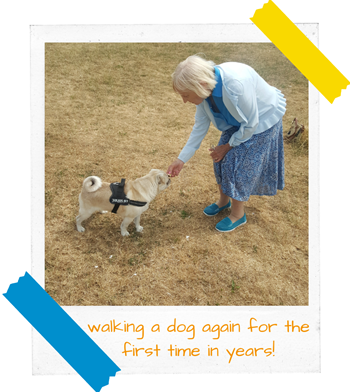
Our Person-Centred Approach to Care
In a nutshell, person-centred care revolves around finding out which things are most important in the life of someone we support, and ensuring that the care they receive empowers them to continue to enjoy those things to the maximum extent they can. Such an approach can produce amazing improvements in the quality of life experienced by someone living with a form of dementia such as Alzheimer’s Disease or Dementia with Lewy Bodies.
Quite often, once someone has a negative experience while trying to do one of the activities they enjoy, they may well simply write the activity off as something they can no longer do. Alternatively, the person trying to assist them may witness the difficulty and decide to protect the person from stress by not repeating the activity. Over time, more and more activities may be seen as “too difficult” and a person living with dementia may have less and less to look forward to in life.
Right from the beginning, our dementia care is focused on finding the things that our customers enjoy doing now, or used to enjoy in the past but have found too challenging to continue with unassisted. Our Care Assistants at Bluebird Care are encouraged to develop their relationships with their customers, and through daily conversations, asking questions and listening to stories and anecdotes, they learn more about the person whom they are working with, and can begin to help create activities which bring joy and an increased quality of life.

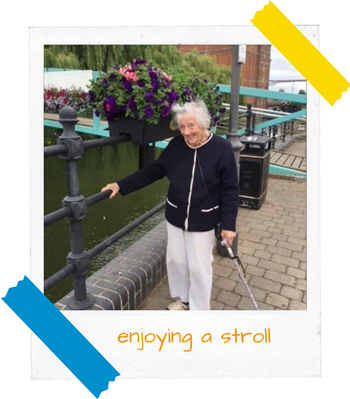
Working with Strengths
A strengths-based care model encourages someone living with dementia to retain as much of their physical capability and decision-making control as possible . Using the strengths and skills we have accumulated over a lifetime can bring us great enjoyment, and give us a sense of self-worth and engagement in life.
Our Dementia Care team are taught to build on the knowledge gained through delivering person-centred care, and to encourage our customers to continue to use their strengths by supporting them with the aspects of an activity in which they meet obstacles, without us taking over and de-skilling them.
Strengths-based care utilises the strengths of the individual we are supporting, along with the strengths and resources available to them through their family, friends and local community. This way of working enables people to remain connected to their community, and to continue to feel engaged with and valued by those around them.


Investment in Relationships
Whilst all people like to develop strong relationships with the people who are delivering their care, this can be particularly so for people living with dementia. Building trust and knowledge of the person we are supporting is essential to working in a person-centred and strengths-based way, and to help do this, it is essential that the numbers of carers is kept to a minimum. This is often referred to as Continuity of Care.
We have found that the best solution is to work in small teams, with members who have a well-rounded skillset between them. This means our customer’s care will always be delivered by someone who knows them, and who they can trust.
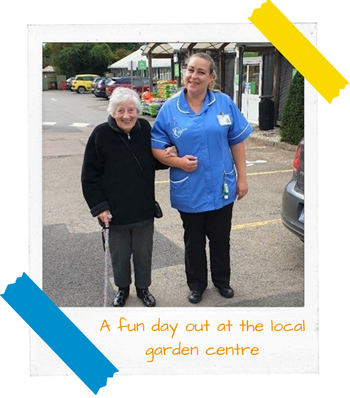
Reliability and Routine
Establishing and maintaining healthy routines can bring great benefit to overall wellbeing, both for people living with dementia and those who live around them.
Getting up around the same time every day and having a day which includes meaningful activity, can encourage a good sleep routine at night. The structure of a laid table at mealtimes can inspire people to eat healthily, rather then to snack from the fridge. Of course, imposing this sort of structure on someone who never lived like that would be particularly unkind as well as counter-productive, but for the majority of people this routine would have been quite normal, and can help alleviate some of the more challenging problems around sleep cycles and dietary requirements.
Uncertainty about when the next carer will be visiting can be a source of distress, so we do everything possible to prevent the situation arising. Our customers always know who is coming and when. We will agree a target call time with you at the start of care delivery, and because we support people with needs which may vary day-by-day, we promise to always schedule your call to within 30 minutes of that time, and to send you a roster with the times you can expect us. If there is going to be a variation of more than ten minutes from the visit times which we have sent out to you, we will call to let you know.

Training, Knowledge and a Culture of Learning
All of the forms of dementia present differently, and having the understanding of the symptoms of someone’s dementia greatly assists in supporting them. It is vital that any training is both up-to-date, retained and implemented in daily practice, in a sympathetic way which respects the uniqueness of the person who is being supported.
We are well aware of the ineffectiveness of an education system based purely on e-learning platforms – this infographic, from a study carried out by the National Training Laboratories Institute, shows how retention using this method can vary from 30% down to as little as 5%.
In order for learning to become a part of daily practice, a more complete model of training and development is required, involving group discussion, guided learning while in placement and the opportunity to teach others.
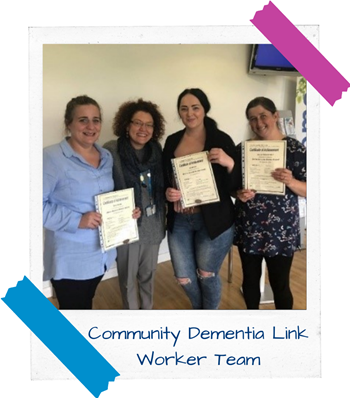
Over the last 12 years, we have created a complete career pathway for our valued teams of care staff to hone and develop their skills and knowledge. Every member of our management team has received advanced dementia training, and is qualified to help our customers achieve the best possible quality of life. All carers visiting have received the best possible dementia training, and each team has an assigned and qualified Dementia Lead, who has the skills and resources to lead the whole team to produce excellent results on a regular basis.
Our Stroud and Cirencester team was rated as “Outstanding,” by the Care Quality Commission at our last inspection, stating “Leadership from within the service was strong, which supported staff to be motivated and clear on support that people needed. Staff were imaginative and highly proactive which meant the service was outstandingly responsive to the changing needs of people, including people living with dementia.”
If you would like to speak to one of our team about the support we could provide to you, please contact us by clicking here, or call us on 01453 757 937.
